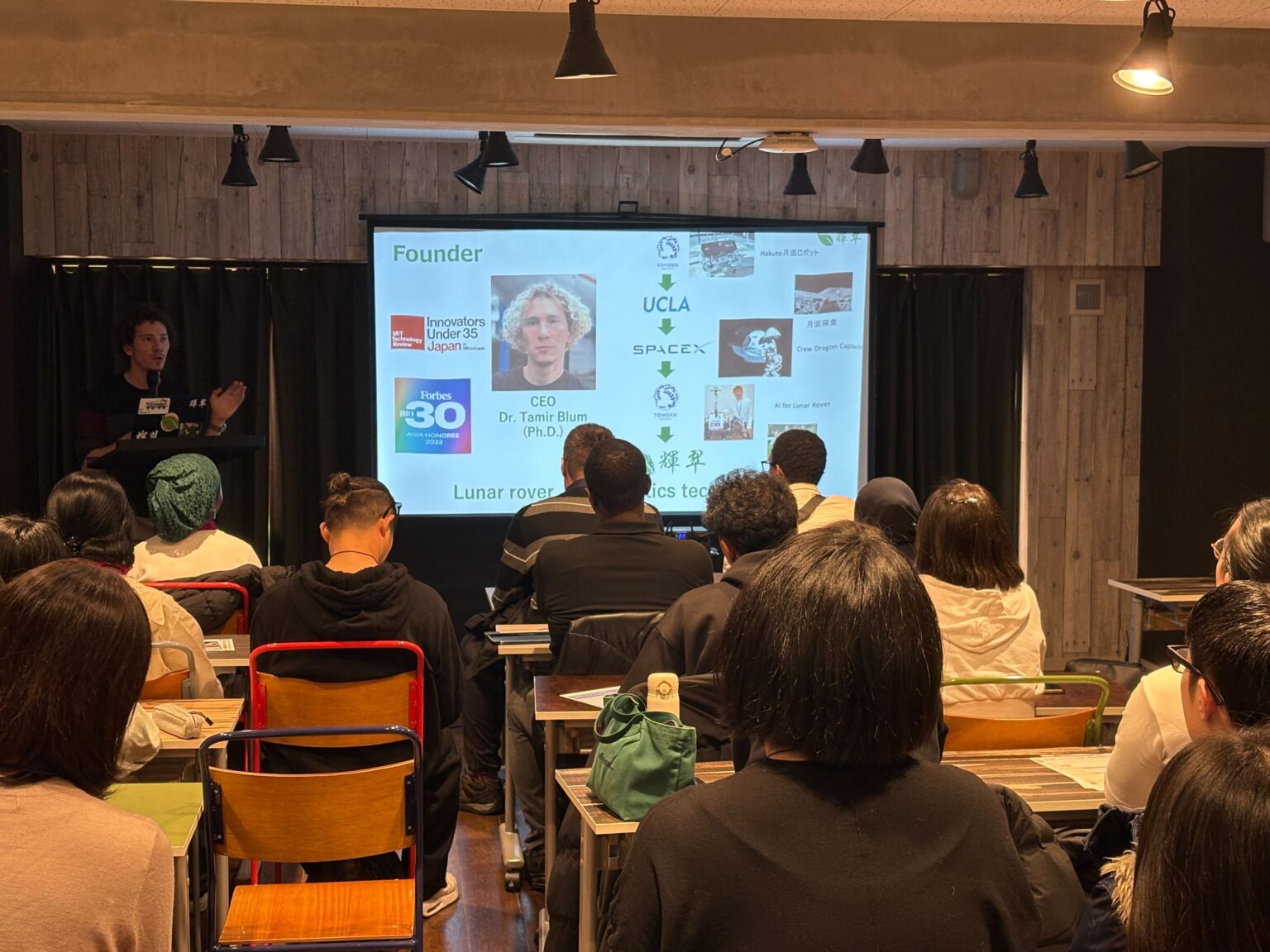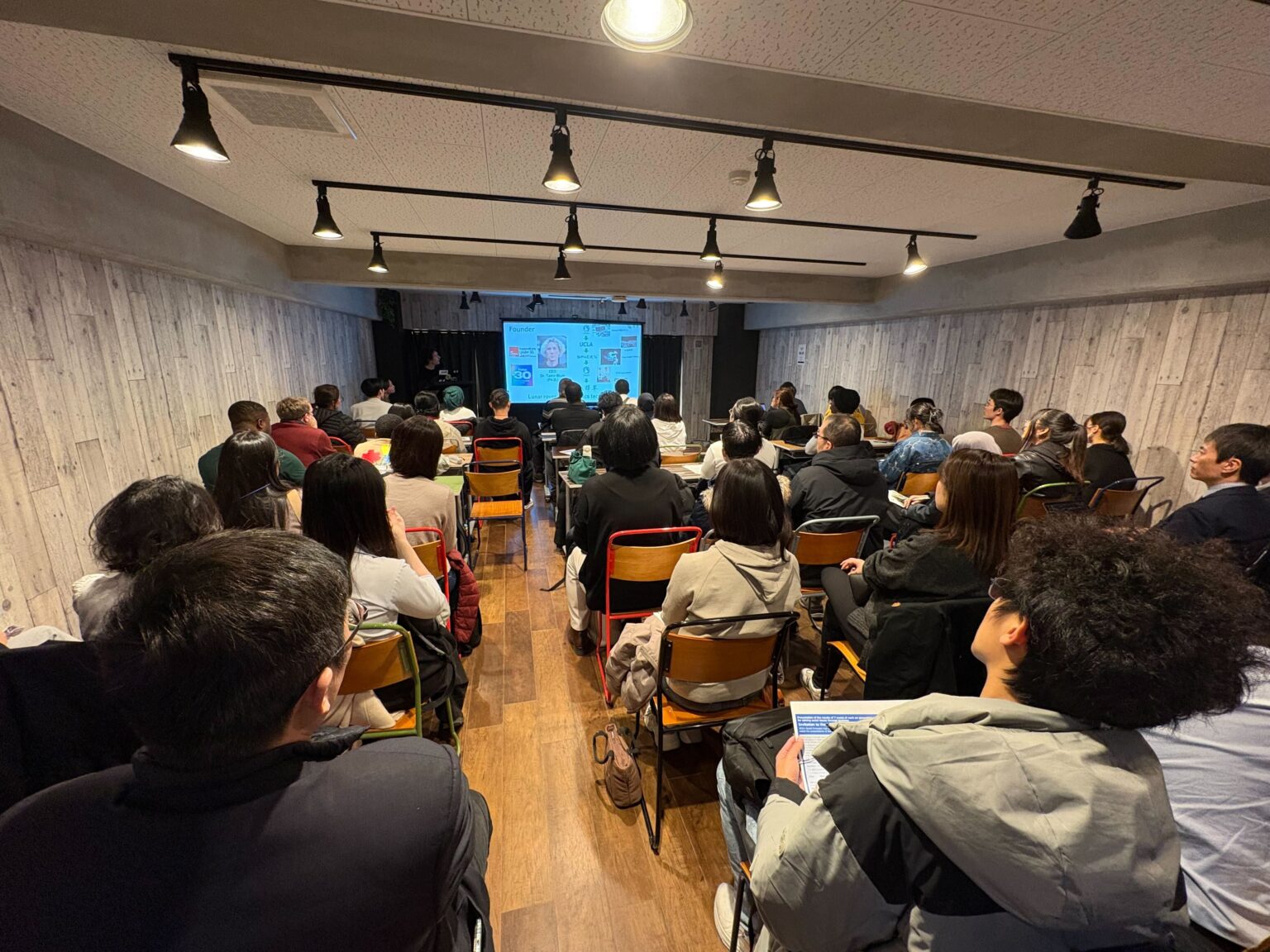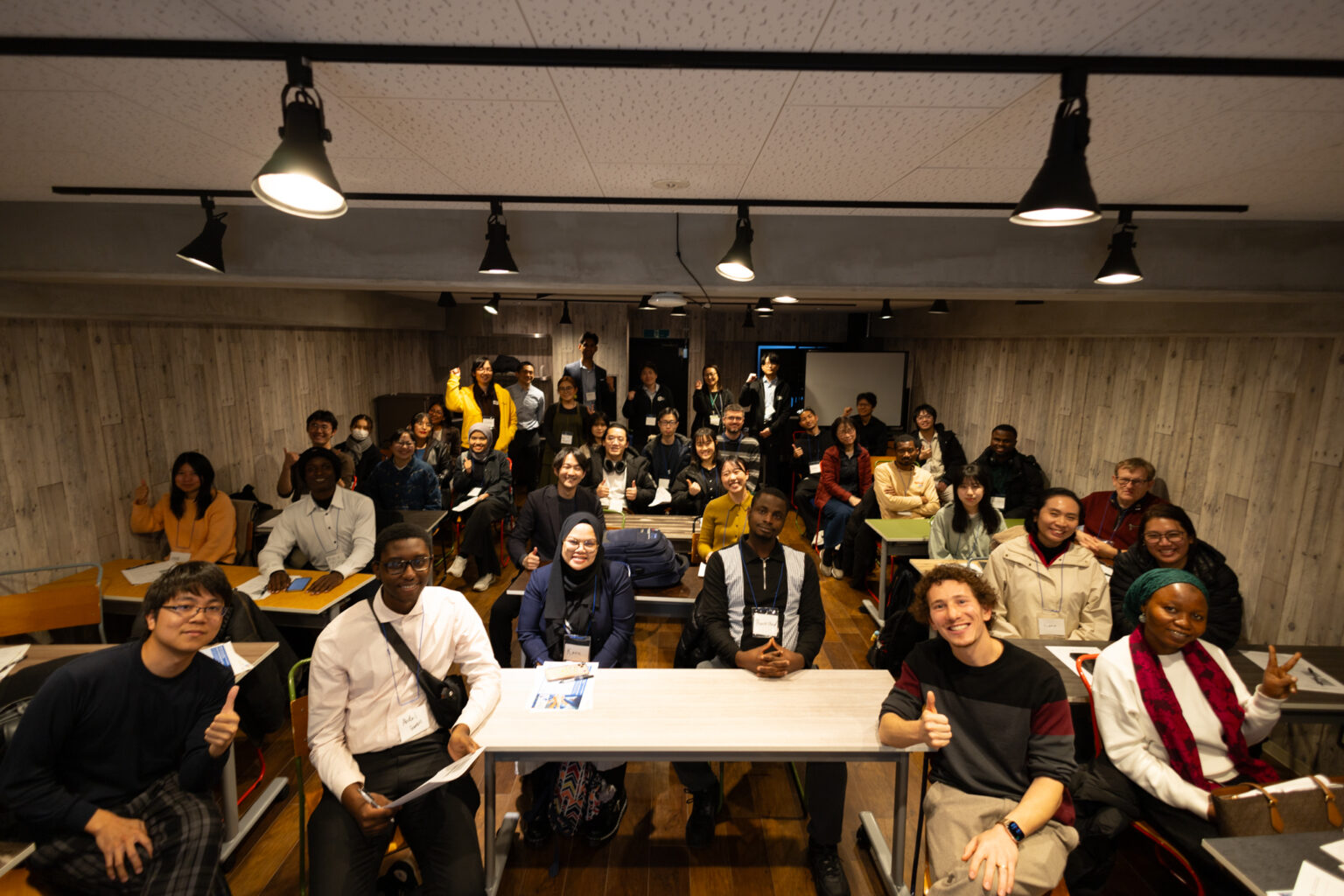Fostering Innovation in Sendai: Insights from Startup Leaders
On a brisk evening in Sendai, a diverse group of aspiring entrepreneurs, international students, and local business leaders gathered to explore the city’s evolving startup ecosystem. The event, with Mr. Teruhisa Zaizen from Sendai City Hall’s Startup Support Department and Dr. Tamir Blum, founder of Kisui Tech, set the stage for an inspiring discussion filled with personal stories, practical advice, and meaningful interactions.
Sendai’s Startup Ecosystem: A Decade of Growth and Support
Mr. Zaizen opened the session by reflecting on how Sendai has grown as a startup hub. He emphasized how the 2011 Great East Japan Earthquake reshaped the city’s economic landscape, sparking a wave of entrepreneurial resilience. “Supporting such entrepreneurship would help rebuild and revitalize their local economy,” he explained. Since then, the city has launched multiple initiatives, including the Sendai City Entrepreneurship Support Center (Assista) in 2014 and an accelerator program in 2017.
The recently opened Sendai Startup Studio, located near Sendai Station, has become a key resource for entrepreneurs, providing consultations, networking opportunities, and advisory programs. Mr. Zaizen highlighted the city’s commitment to inclusivity, particularly for international entrepreneurs and students. “We the people of Sendai and the Tohoku region, including foreign residents, can experience prosperity.”
A Founder’s Journey: From Space Robotics to Autonomous Farming
Dr. Tamir Blum, an Israeli-American entrepreneur, shared his unconventional path to founding Kisui Tech in Sendai. With a background in space robotics and a PhD from Tohoku University, he never expected to find himself tackling Japan’s agricultural labor crisis when he was a student participating in a summer intern program. It all started during a summer internship, where he observed a growing issue: too few farmers, and an aging workforce. What began as curiosity soon turned into a lifelong mission to transform the agricultural industry.
His startup’s flagship product, Adam, is an AI-powered autonomous off-road vehicle designed to assist in labor-intensive orchard farming. But beyond the technology, Dr. Blum emphasized the relationships that helped him build his company. “I spent many, many hours, thousands of hours interviewing farmers, visiting their farms, seeing how they do current operations,” he said. “The farmers have been very open, very friendly. More than I expect it to be open to new solutions and to new technology.”
Dr. Blum emphasized that Kisui Tech is not just about developing advanced robotics—it’s about creating meaningful change in agriculture. “We’re not just trying to create a robot; we’re trying to empower farmers to have a brighter, greener future,” he stated. By designing Adam, the AI-powered off-road vehicle, Kisui Tech aims to ease the burden on aging farmers while promoting sustainable farming practices.

Real Conversations, Real Connections
The audience, a mix of Japanese and international participants, was eager to hear more about the personal side of starting a business in Sendai. One international student asked how Dr. Blum navigated cultural and language barriers. He reassured us of the difficulty of mastering Japanese and overcoming those barriers, while mentioning that “I practice a lot with farmers, and luckily that has allowed me to improve my Japanese, but it is very difficult.”
A young entrepreneur was curious about Kisui Tech’s early funding. Dr. Blum shared a candid story from his first crowdfunding to the recent strategies. Kisui Tech’s funding journey began with a crowdfunding campaign that raised around 1.5 million JPY to develop its first prototype, subsequently attracting investments from venture capital, corporate venture capital, and angel investors. He also noted that while hardware businesses are often less attractive to venture capitalists, integrating a software-as-a-service (SaaS) model helped make Kisui Tech a more appealing investment. “Even without that, we would be pushing forward, just like Newton,” he added with a smile.
A particularly engaging discussion arose around Adam’s adaptability for different types of farms. One other attendee asked if the robot could be used for tea plantations. Dr. Blum acknowledged the challenge that as of now, Adam is too big for tea farms, but if there’s enough demand, we could explore a smaller version.
Building Bridges Across Borders
The conversation also touched on the importance of collaboration. Dr. Blum emphasized that Kisui Tech’s diverse team—comprising 20 full-time employees from 15 nationalities—has been a driving force in their innovation. “About 70-80% of our people have an engineering background, but not just from one industry, but really a lot of the industry. Lots of nationalities, lots of disciplines,” he stated.
A Takeaway for Future Entrepreneurs
As the session wrapped up, the atmosphere buzzed with energy. Attendees stayed behind to exchange contacts, ask more questions, and discuss their own startup ambitions. For many international students and foreign residents in the room, the night was more than just an event. It was a glimpse into a future where they, too, could turn their ideas into reality in Sendai.
The impact of the session was reflected in the feedback from participants. One high school student shared, “I’m just a Japanese high school student and don’t have many opportunities to interact with foreign people or hear English, so this was a lot of fun!” with some excitement that “I feel happy that so many foreigners want to start new businesses in Sendai.”
Others appreciated the insights gained from the discussion. “It was a great experience for me. I got more insight and a new perspective on startups,” one participant wrote. Another attendee, interested in expanding beyond Japan, commented, “I would love to learn more about Sendai’s startup support and the possibilities for businesses based outside Japan.”
As one student summed it up on their way out: “This made starting a business in Japan feel possible.”

This article was edited by Itsuki Tsuchida.


